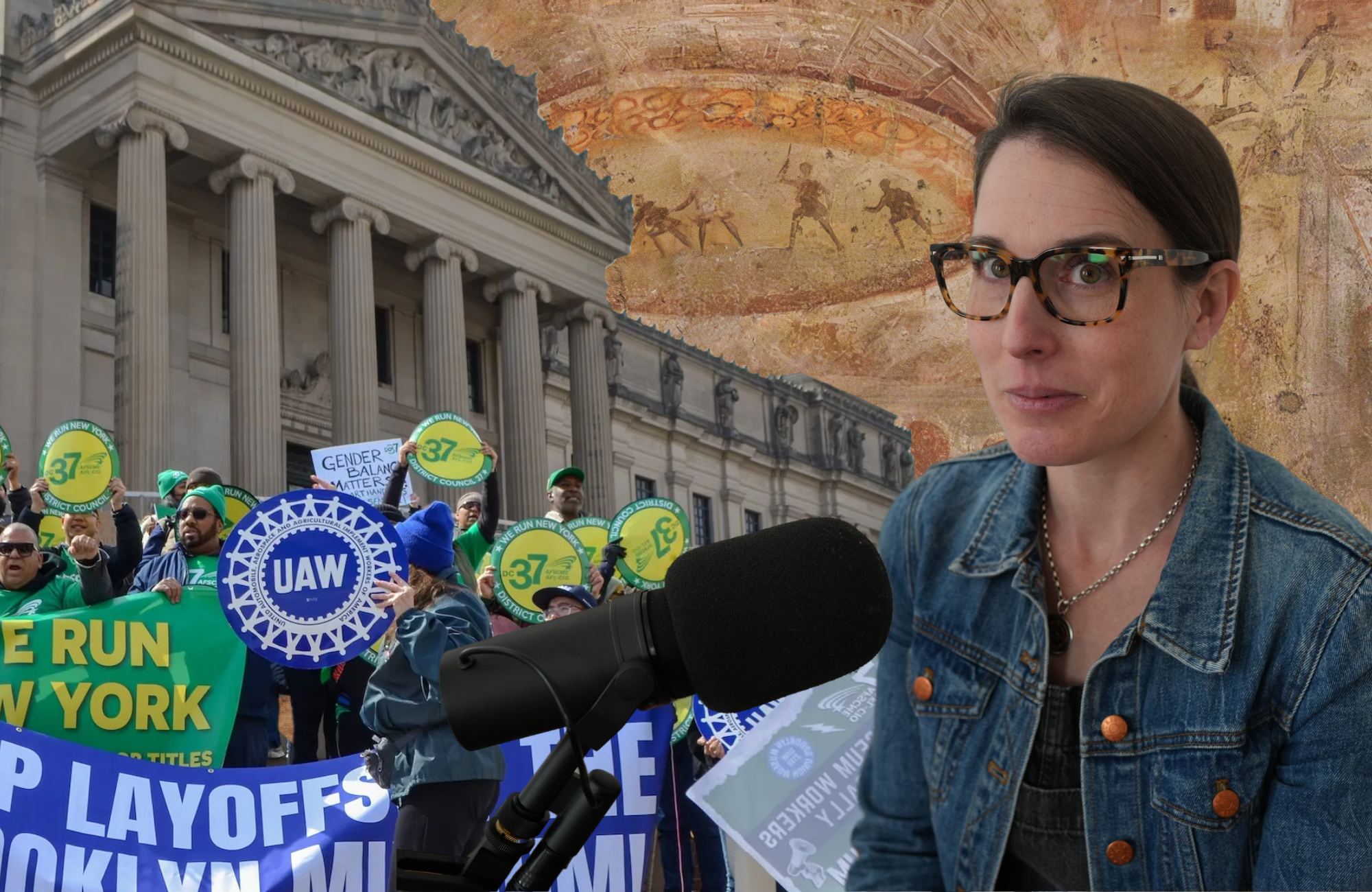At Hyperallergic, we take pride in covering protesting museum workers who take to the streets. But few realize that these workers are taking part in a practice that’s as old as some of the ancient artifacts in their institutions.
In this episode of the Hyperallergic Podcast, we’re joined by professor, public historian, and Hyperallergic contributor Sarah E. Bond, who shares her knowledge on labor organizing in the ancient world, which stretches back to the earliest recorded strike, which took place in 1157 BCE in the Ancient Egyptian artisan’s village of Deir el-Medina.

We learn that it’s not just the overwhelmingly White and male field of Classics that is to blame for the lack of attention paid to the everyday workers of Ancient Egypt and Rome, but also the fact that the very authors they study, who tended to be extremely wealthy, often recorded striking workers as “rioters.” As Bond recently wrote, new studies are showing that the great artistic accomplishments and economic abundance of the ancient world were “heavily reliant on the collective contributions of the millions of enslaved persons laboring across the Mediterranean” — in fact, 20–25% of the Roman population at the height of the Roman Empire was enslaved. Some of America’s founding fathers would even quote philosophers like Aristotle, who supported this system, as justification for continuing slavery themselves.


Bond joins Editor-in-Chief Hrag Vartanian to talk about the stories that fill her new book, Strike: Labor, Unions, and Resistance in the Roman Empire, from women textile workers staging a walkout in Ancient Egypt, to the emperor and empress who slaughter tens of thousands of protesters in the Constantinople hippodrome — and even how Mark Zuckerberg’s obsession with Ancient Roman stoicism (or rather, “bro-icism”) informs technocrats’ inhuman sense of the value of human labor.
Subscribe to Hyperallergic on Apple Podcasts and anywhere else you listen to podcasts. Watch the complete video of the conversation with images of the artworks on YouTube.

